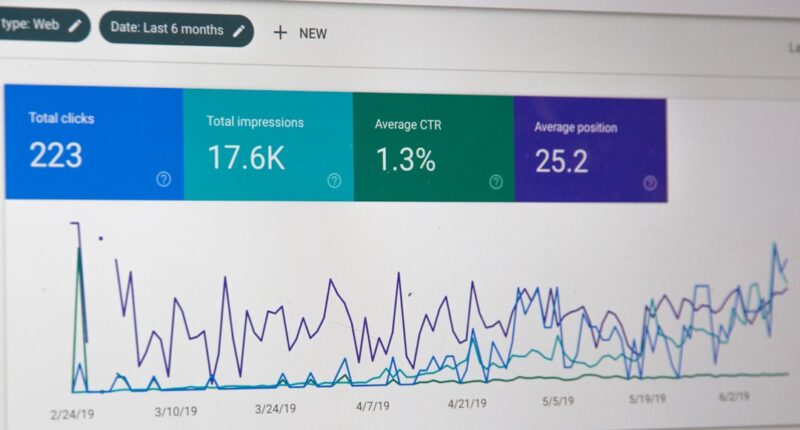User-generated content (UGC) creators play a crucial role in influencer marketing. UGC creators are everyday people who have a passion for a particular niche and create content around it. They are authentic, relatable, and have built a loyal following based on their genuine experiences and opinions. This makes them highly influential in their respective communities. When brands collaborate with UGC creators, they can tap into the trust and credibility that these creators have established with their audience. This can lead to higher engagement, increased brand awareness, and ultimately, more conversions.
Furthermore, UGC creators are adept at creating content that resonates with their audience. They understand the preferences and interests of their followers and can tailor their content to align with these. This level of personalization is invaluable for brands looking to connect with their target audience on a deeper level. UGC creators also have the ability to showcase products or services in a way that feels organic and authentic, which can be more impactful than traditional advertising. By leveraging the influence of UGC creators, brands can humanize their marketing efforts and create a more genuine connection with consumers.
Building an Effective UGC Email List for Influencer Outreach
Building an effective UGC email list is essential for successful influencer outreach. The first step is to identify UGC creators who align with your brand’s values, niche, and target audience. This can be done through social media platforms, influencer marketing tools, or by simply researching popular content creators within your industry. Once you have identified potential UGC creators, it’s important to gather their contact information, such as email addresses, so that you can reach out to them with collaboration opportunities.
To build your UGC email list, consider creating a landing page on your website specifically for UGC creators. This page can include a form where creators can submit their contact information and details about their content and audience. You can also incentivize sign-ups by offering exclusive perks or benefits for joining your UGC email list. Additionally, consider reaching out to UGC creators directly through social media or other platforms to request their contact information for future collaborations. By building a robust UGC email list, you can streamline your influencer outreach efforts and connect with relevant creators more efficiently.
Utilizing a UGC Database to Identify Look-Alike Influencers
Utilizing a UGC database can be a game-changer when it comes to identifying look-alike influencers for your brand. A UGC database is a centralized repository of user-generated content and creator information that can be used to analyze trends, identify top-performing content, and discover new influencers. By leveraging a UGC database, brands can gain valuable insights into the type of content that resonates with their target audience and identify creators who have a similar style or audience demographic.
One way to utilize a UGC database to identify look-alike influencers is by using advanced search filters to narrow down creators based on specific criteria such as location, interests, engagement rate, and audience demographics. This can help you find influencers who closely resemble your existing collaborators or who have the potential to reach a similar audience. Additionally, you can use the data from your UGC database to track the performance of different influencers and identify patterns that indicate which creators are most effective at driving engagement and conversions within your niche. By leveraging the power of a UGC database, brands can make more informed decisions when it comes to selecting influencers for their campaigns.
Leveraging UGC Creators to Expand Your Brand’s Reach
| UGC Platform | Number of Creators | Reach | Engagement Rate |
|---|---|---|---|
| 1000 | 1,000,000 | 5% | |
| TikTok | 500 | 500,000 | 8% |
| YouTube | 300 | 2,000,000 | 10% |
Leveraging UGC creators is an effective strategy for expanding your brand’s reach and connecting with new audiences. UGC creators have already established a loyal following within their niche, which means they have the potential to introduce your brand to a whole new set of consumers. By collaborating with UGC creators, brands can tap into their existing audience and leverage their influence to promote products or services in an authentic and relatable way.
One way to leverage UGC creators to expand your brand’s reach is by encouraging them to create content that showcases your brand in a positive light. This could include product reviews, tutorials, or lifestyle content that incorporates your brand in a natural and seamless manner. By doing so, UGC creators can introduce your brand to their audience in a way that feels genuine and trustworthy, leading to increased brand awareness and potential new customers. Additionally, brands can leverage the social proof generated by UGC creators’ content to build credibility and trust with new audiences. By strategically partnering with UGC creators, brands can extend their reach and connect with consumers who may not have been exposed to their brand through traditional marketing efforts.
Identifying the Right UGC Creators for Your Brand’s Niche
Identifying the right UGC creators for your brand’s niche is crucial for successful influencer marketing campaigns. Not all UGC creators will be the right fit for your brand, so it’s important to carefully evaluate potential collaborators based on several key factors. First and foremost, consider the relevance of the creator’s content to your brand’s niche. Look for creators who produce content that aligns with your brand’s values, products, or services, as this will ensure that their audience is likely to be interested in what your brand has to offer.
In addition to relevance, it’s important to assess the engagement and authenticity of potential UGC creators. Look for creators who have a high level of engagement with their audience, as this indicates that their followers are actively interested in their content and opinions. Authenticity is also crucial when identifying the right UGC creators for your brand. Seek out creators who are genuine in their recommendations and have built a reputation for honesty and transparency with their audience. By carefully vetting potential collaborators based on relevance, engagement, and authenticity, brands can ensure that they are partnering with UGC creators who will effectively resonate with their target audience and represent their brand in a positive light.
Establishing Long-Term Relationships with UGC Creators for Ongoing Campaigns

Establishing long-term relationships with UGC creators is beneficial for both brands and creators alike. Long-term collaborations allow brands to build a consistent presence within a creator’s content and establish a deeper connection with their audience over time. This can lead to increased brand loyalty, as consumers are more likely to trust recommendations from familiar faces they have seen multiple times. For UGC creators, long-term partnerships provide stability and ongoing opportunities for collaboration, which can be more lucrative and fulfilling than one-off campaigns.
To establish long-term relationships with UGC creators, it’s important for brands to prioritize clear communication, transparency, and mutual respect. Clearly outline expectations, deliverables, and compensation for each collaboration to ensure that both parties are on the same page. Additionally, take the time to understand the creator’s content style, audience preferences, and long-term goals so that you can tailor collaborations to align with their brand and audience. By nurturing these relationships over time, brands can create a network of trusted UGC creators who consistently deliver high-quality content that resonates with their target audience.
Measuring the Impact of UGC Creator Collaborations on Brand Awareness and Engagement
Measuring the impact of UGC creator collaborations on brand awareness and engagement is essential for evaluating the success of influencer marketing campaigns. There are several key metrics that brands can use to assess the impact of UGC creator collaborations, including reach, engagement rate, website traffic, and conversions. By tracking these metrics before, during, and after collaborations, brands can gain valuable insights into the effectiveness of their influencer partnerships and make data-driven decisions for future campaigns.
One way to measure the impact of UGC creator collaborations is by analyzing reach and engagement metrics on social media platforms. Look at the number of impressions, likes, comments, shares, and other engagement indicators to gauge the level of interest and interaction generated by the creator’s content. Additionally, track website traffic and conversions driven by UGC creator collaborations using tools like Google Analytics or affiliate tracking software. By comparing these metrics against benchmarks and KPIs, brands can determine the ROI of influencer collaborations and identify areas for improvement in future campaigns. Measuring the impact of UGC creator collaborations provides valuable insights that can inform marketing strategies and optimize future partnerships for maximum impact on brand awareness and engagement.
In conclusion, user-generated content (UGC) creators are invaluable assets in influencer marketing due to their authenticity, relatability, and ability to connect with niche audiences. Building an effective UGC email list is crucial for successful influencer outreach, as it allows brands to connect with relevant creators more efficiently. Utilizing a UGC database can help identify look-alike influencers who resonate with your target audience and have the potential to drive engagement and conversions. Leveraging UGC creators is an effective strategy for expanding brand reach and connecting with new audiences through authentic and relatable content. Identifying the right UGC creators for your brand’s niche involves careful evaluation of relevance, engagement, and authenticity to ensure effective collaboration. Establishing long-term relationships with UGC creators is beneficial for both brands and creators alike, providing stability and ongoing opportunities for collaboration. Measuring the impact of UGC creator collaborations on brand awareness and engagement is essential for evaluating campaign success and making data-driven decisions for future partnerships.
FAQs
What is an influencer tool for look a like influencers?
An influencer tool for look a like influencers is a software or platform that helps brands and marketers identify and connect with influencers who have a similar audience and demographic to a specific target influencer.
How does an influencer tool for look a like influencers work?
An influencer tool for look a like influencers uses data analysis and algorithms to identify influencers who have a similar follower base, engagement rate, and content style to a target influencer. This helps brands and marketers expand their reach and target new audiences effectively.
What are the benefits of using an influencer tool for look a like influencers?
Using an influencer tool for look a like influencers can help brands and marketers diversify their influencer marketing strategy, reach new audiences, and increase the effectiveness of their influencer campaigns. It can also save time and resources by automating the process of identifying and connecting with relevant influencers.
How can brands and marketers use an influencer tool for look a like influencers?
Brands and marketers can use an influencer tool for look a like influencers by inputting the profile of a target influencer and letting the tool analyze and identify similar influencers. They can then reach out to these look a like influencers to collaborate on marketing campaigns and promotions.
Are there any limitations to using an influencer tool for look a like influencers?
While an influencer tool for look a like influencers can be a valuable resource, it’s important to note that it relies on data and algorithms, which may not always capture the full scope of an influencer’s audience and impact. It’s also important for brands and marketers to vet potential look a like influencers to ensure they align with their brand values and goals.





